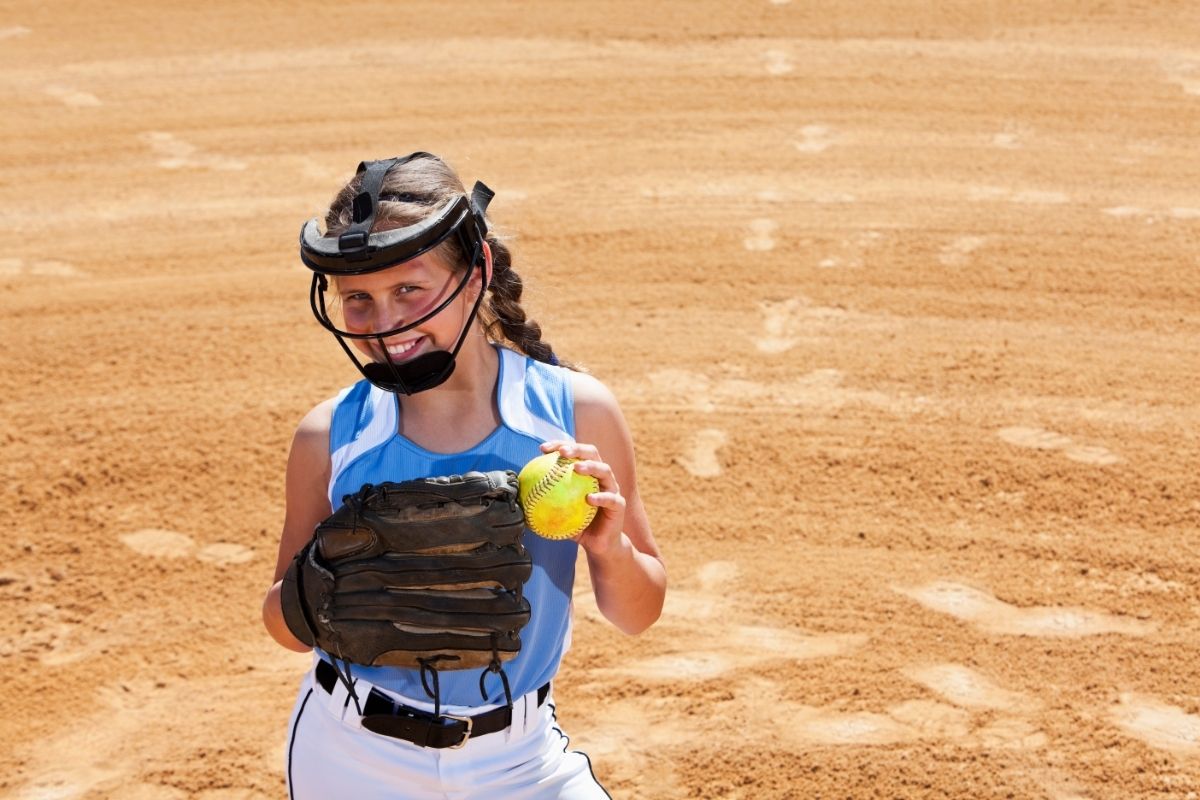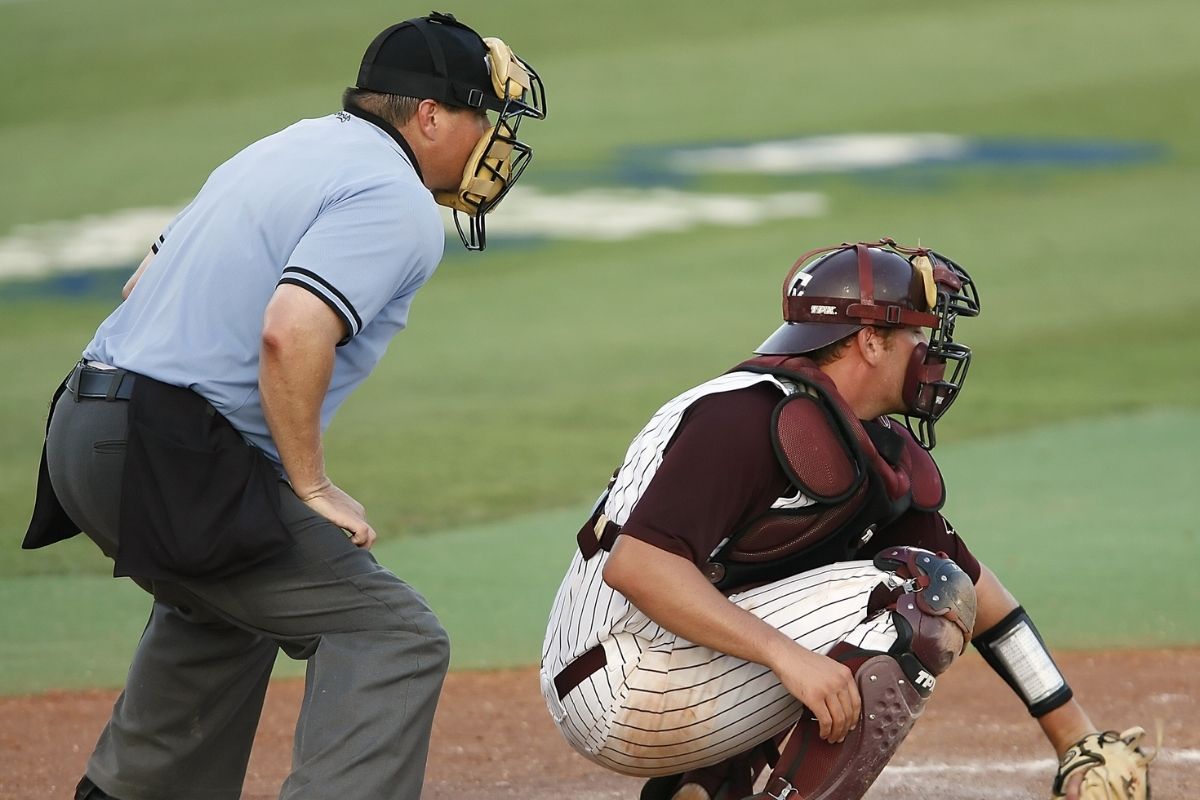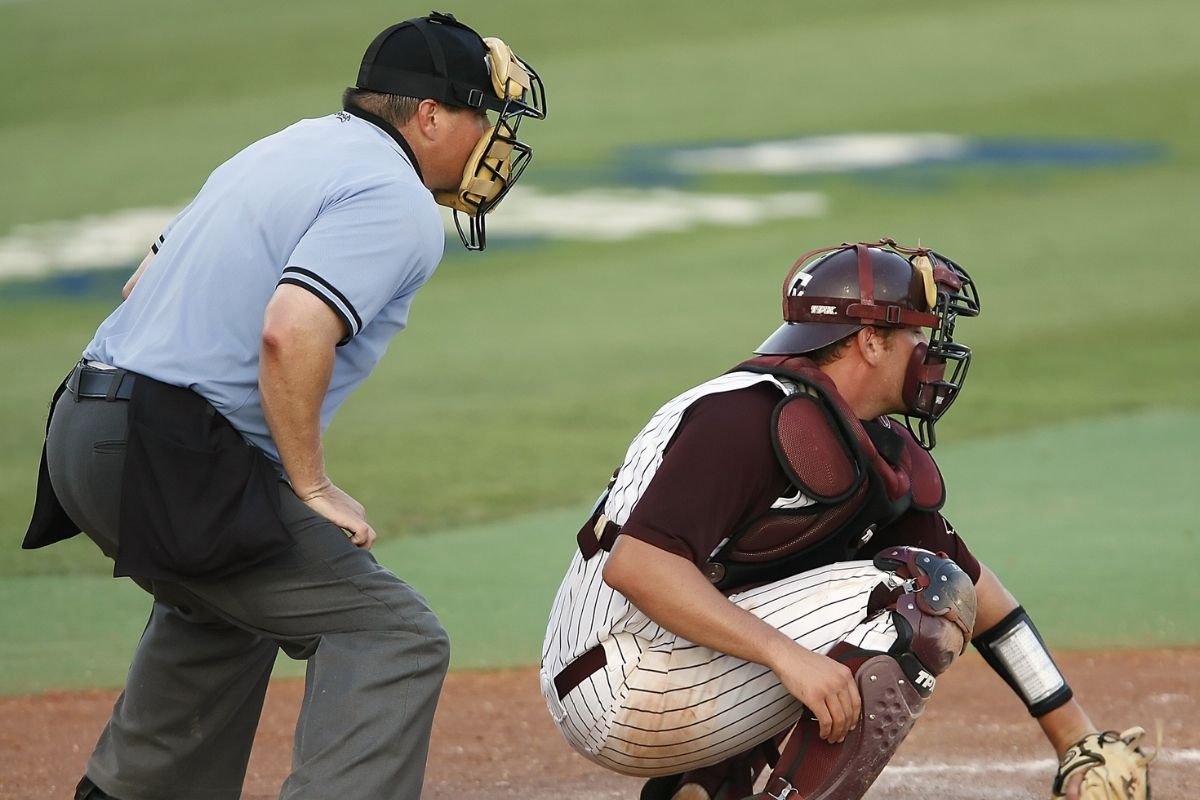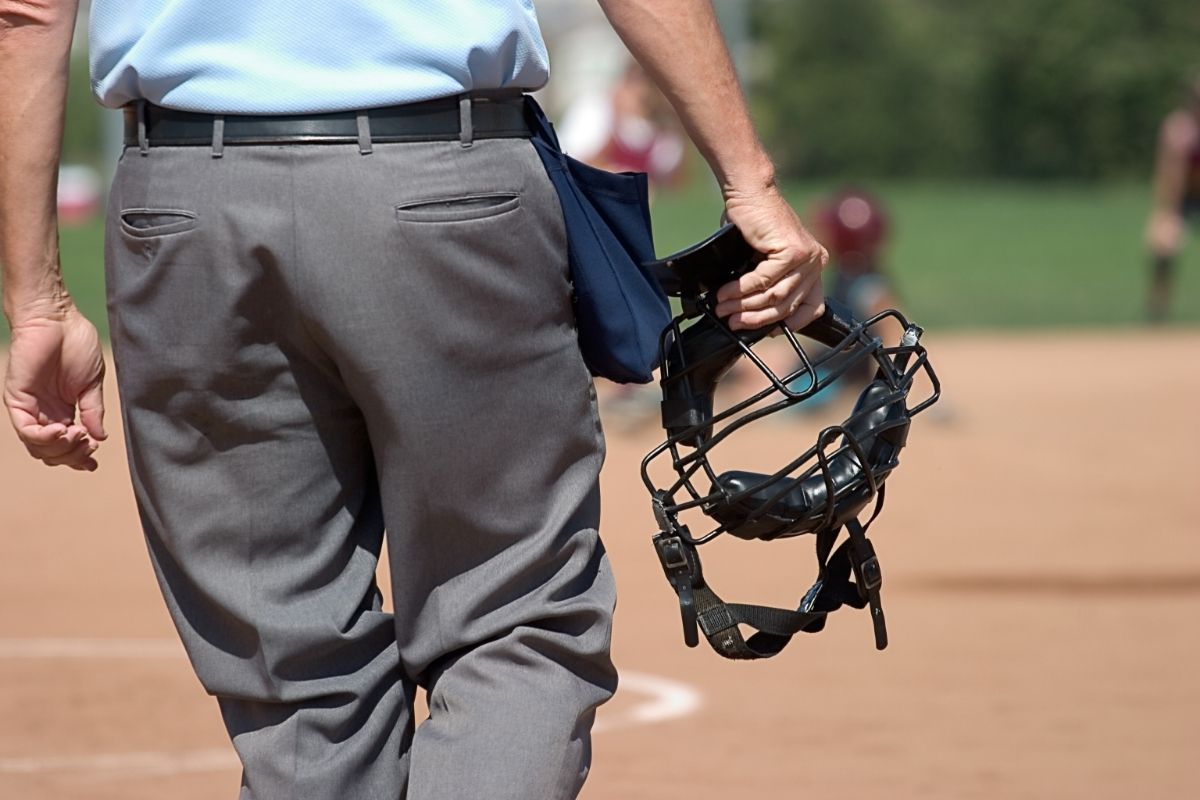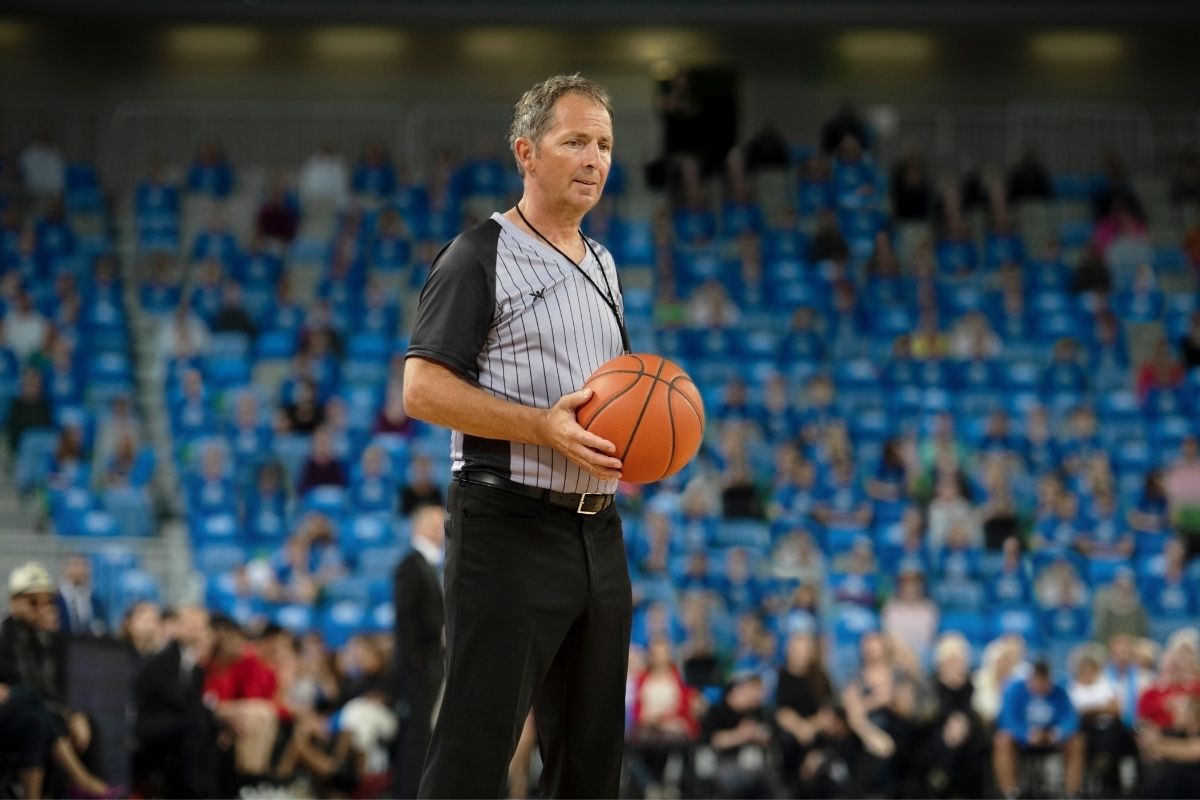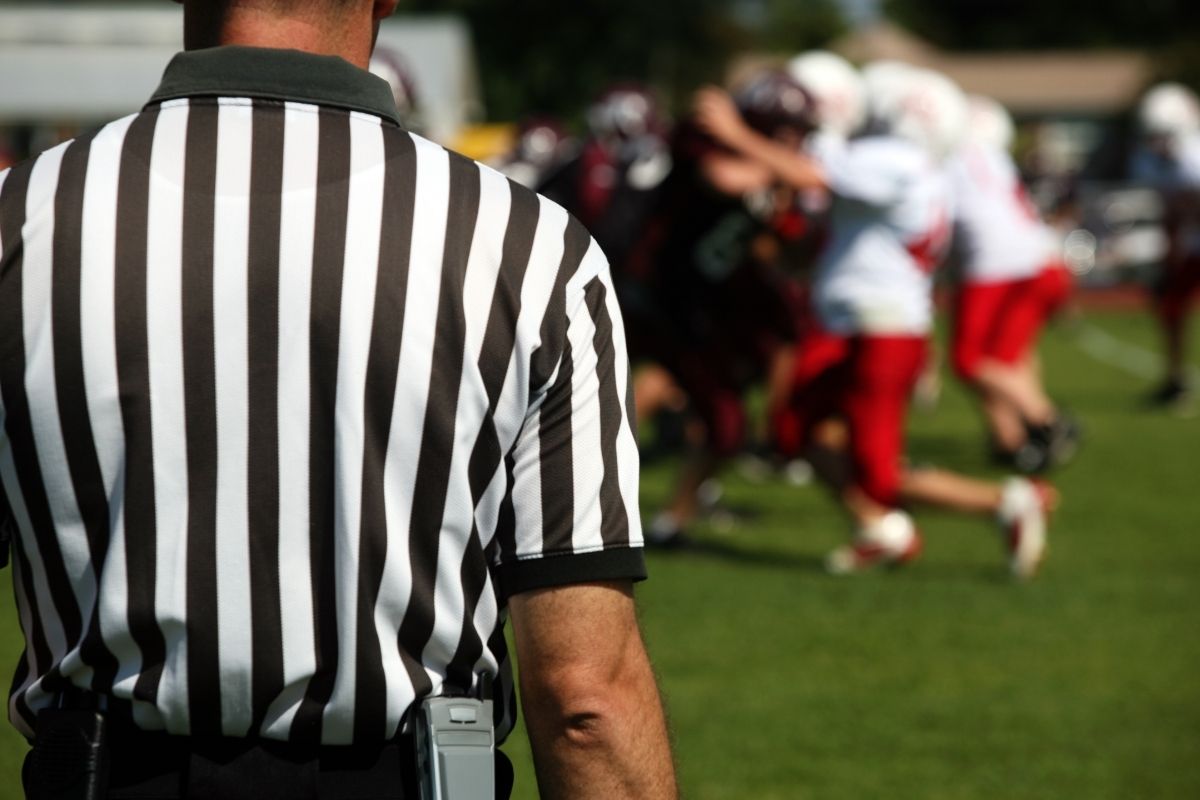Umpires have a huge, important role during every baseball game but what exactly are their duties and responsibilities?
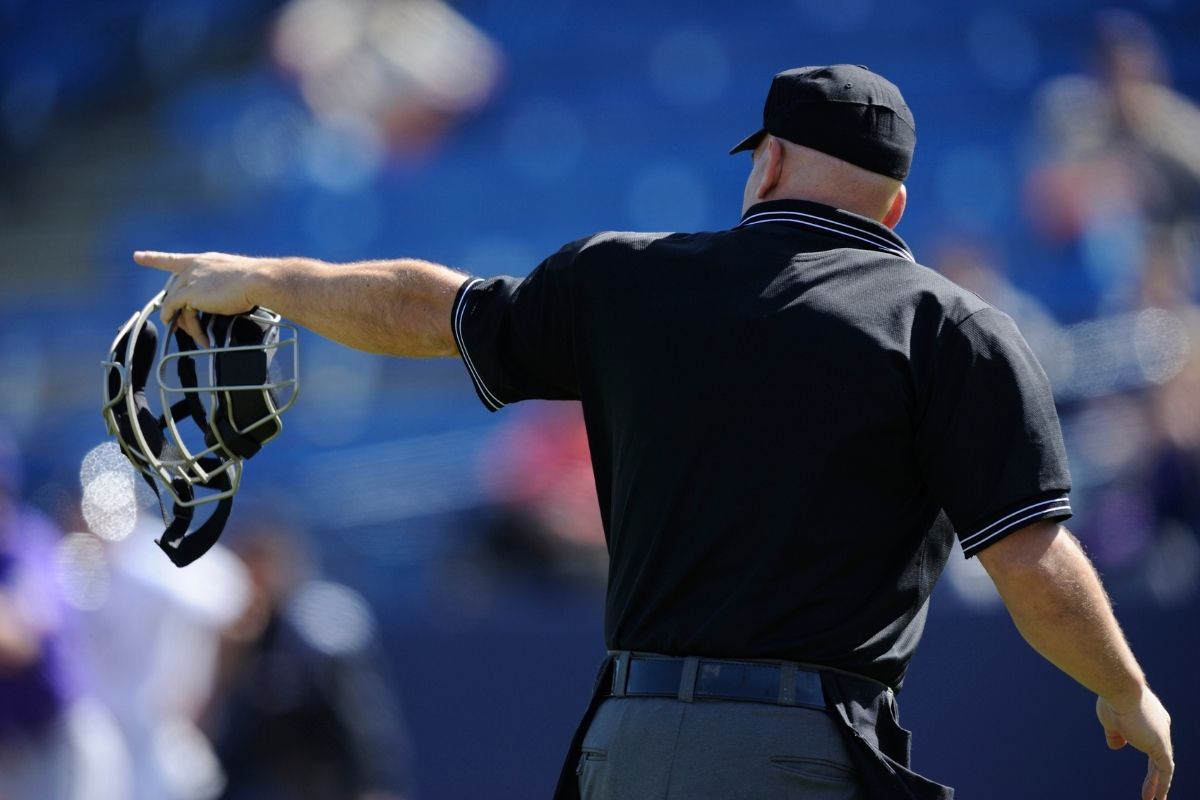

If you are wondering what exactly a baseball umpire does, then this is the place for you.
We are going to be taking a close look at umpires in baseball to see what they do and what they are responsible for during a game of baseball.
What Is An Umpire In Baseball?
An umpire is someone who is in charge of officiating a game of baseball from beginning to end.
They are the ones who enforce the rules and the grounds, the ones who make the calls and also hand out any discipline or punishments for any fouls committed by the players.
Basically, they are like the referees of a baseball game.
There is usually more than one single umpire, with the umpire in chief being the one who is in charge of the whole game.
Typically, there are four umpires – one behind the home plate acting as the umpire in chief, and another three nearby each base.
In some cases, outfield umpires are included and they are positioned further in the outfield.
The umpire in chief is not always the same person throughout the whole season.
Usually, the crew will rotate so each of the four umpires gets an equal chance to work in each position on the pitch. In major league games, the umpires may even rotate during a game.
As the umpire rotates from base to base, their duties and responsibilities also change – so let’s take a look at what exactly those duties and responsibilities are.
What Does An Umpire Do?
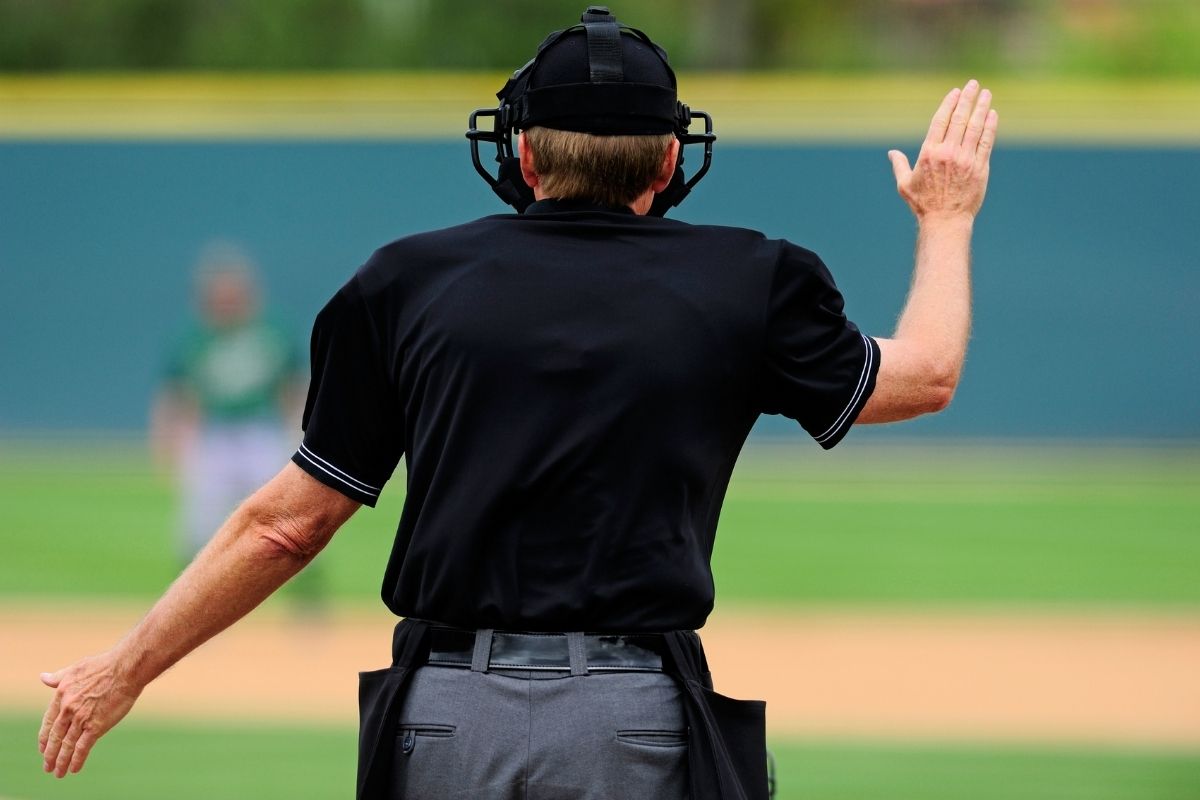

Umpires are the officiators of baseball games, which means that they enforce the rules and are responsible for ensuring that all the players are playing in a sportsmanship manner.
They can even eject players they believe are not playing by the rules or behaving in an appropriate manner.
The umpire in chief, or plate umpire, is the umpire who is positioned behind the home plate. They are responsible for calling balls or strikes, including fair balls and foul balls.
They are also responsible for making a lot of calls for the batter and baserunners around the home plate.
As for the other umpires, they are known as base umpires because they are usually positioned close to a base.
Sometimes a game will include outfield umpires who make rules regarding the catching of batted balls.
An umpire’s call for balls and strikes used to be considered final and could not be reversed, although umpires are permitted to ask the other members of their umpiring crew for help.
This is the only time an umpire’s judgement call can be reversed – if, after discussing it with their team, they themselves decide to reverse it.
However, this has since changed.
If the umpire has made an error, then some leagues will protest the decision. In 2014, the MLB allowed managers to challenge plays and if their challenge resulted in a call overturned, they were rewarded with another challenge.
Sometimes, an umpire may insist that their call was right and in this case, a league official must step in to settle the matter.
Most of the time, the umpire is found to be correct and their judgement is upheld.
The reason behind this change is to help ensure that the game is played as accurately and correctly as possible.
Although this is a duty that lies with the umpires, sometimes they can make a human error and this can result in a misinterpretation of a rule or they make a bad call.
By allowing managers to challenge this and for league officials to also review the call, this can help eliminate bad calls made by human error on the side of the umpire.
Umpires are also involved in instant replay reviews and in some leagues, are responsible for announcing the results of the review.
This is because they are responsible for decisions and calls. However, in other leagues, this duty is shifted to the crew chief instead.
So, overall, an umpire in baseball is responsible for making on field decisions regarding balls, strikes, catching, and more.
It’s their duty to uphold the rules of the game and enforce them by issuing punishments for fouls.
Umpire In Chief VS Crew Chief
A lot of people often mix up the crew chief with the umpire in chief of a baseball game. These are actually tho different roles, with different duties and responsibilities.
The crew chief acts as a liaison between both major-league and high-minor league offices and the crew.
They act as a supervisor over the other members of the crew and ensure that they comply with the rules and policies put in place.
They also review situations, rules and plays with the rest of the crew, but are not the same as an umpire in chief.
The confusion between the two roles is understandable because in some leagues, certain responsibilities of the umpire in chief is reassigned to the crew chief instead, such as with instant replay reviews and announcing the results from that replay review.
The umpire in chief works on the pitch, behind the home plate. Crew chiefs can be found on the sides.
Conclusion
We hope that this article has helped you better understand the duties and responsibilities of an umpire in baseball.
Although it may seem that an umpire may not have much to do during a game of baseball other than stand at their position and watch, they are actually key to how the game works.
Without them, teams would argue over calls and judgements so umpires are there to act as a third party to help ensure that the game is played correctly and fairly.
However, umpires are human just like the rest of us and are capable of making bad calls now and then. In these instances, the umpire’s call can be challenged in certain leagues but very rarely are their decisions ever reversed or overturned.
- Can You Play Pickleball on Grass? Tips and Tricks - June 12, 2023
- Do Pickleballs Wear Out? Everything You Need to Know - June 12, 2023
- Can You Play Pickleball on Concrete? A Guide to Playing on Hard Surfaces - June 12, 2023


